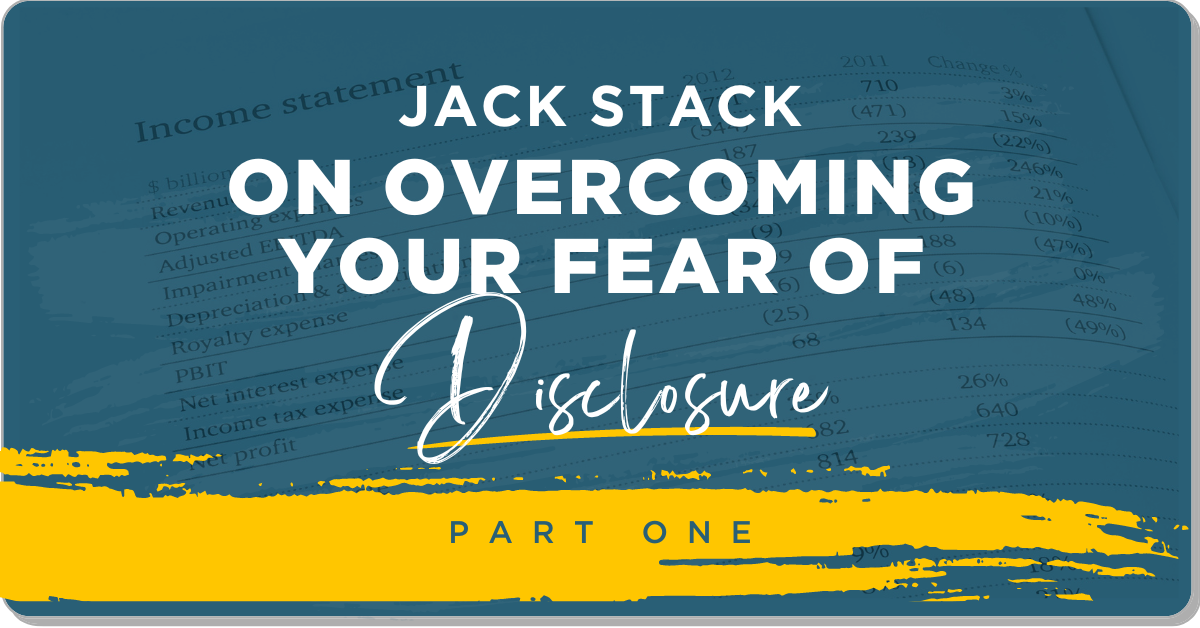Taking the leap into open-book management and a transparent culture can be intimidating, so we asked the best of the best in open-book why they implemented the Great Game of Business®, and what motivates them to continue investing in The Game.
Read More
On Monday, September 15, 2019, thousands of factory workers went on strike. It was the first time the union, the United Auto Workers, or UAW, had called for a work stoppage in a decade. It remains to be seen if and when the strike will have any significant impact on any of the automotive-related businesses at SRC.
Read More
Knowledge is power, or in its original Latin, “Scientia potentia est.” The saying, attributed to the 16th century writings of Sir Francis Bacon may be a centuries-old sentiment, but the idea has significant applications in today’s business world. A good modern manager should be familiar with the old Latin phrase in its new forms: open-book management and financial transparency. Here’s why transparency in the workplace matters.
Read More
We love to see and hear the inside stories of companies putting the principles and practices of The Great Game of Business® to work in their organizations. As we revealed at the 2018 Great Game of Business Conference, we have a goal to impact 10 million lives in the next 10 years in the #sharonthedream campaign. Here are three of our favorite videos representing three very different stories of how the Great Game has made a difference...
Read More
Are you ready to introduce Great Game™ to your employees? Reading the book as a group is a great way to establish the concepts of the Great Game of Business® with your staff, whether your company is new in implementing open-book management, introducing new hires to The Game, or refreshing your Great Game knowledge.
Read More
Excerpted from The Great Game of Business. The Great Fear #2 Is It Competitors You Fear—Or Your Own Employees? Sad to say, a lot of companies hide their financials not because they're afraid of their competitors, but because they're afraid of their employees. They don't think people will understand the numbers, and there's some truth to that. If you don't show employees how to use financial information as a tool to help the company, they might well use it as a weapon against the company.
Read More
These three Great Game® videos illustrate an overview and the why behind Great Game methodology, highlight the origins of open-book management & the Great Game of Business®, and give a live example of one of our fundamental practices: the Huddle Cycle. Check them out to see how GGOB instills Lasting Cultural Change while promoting Rapid Financial Results™ in organizations across the globe.
Read More
Excerpted from The Great Game of Business. How do you get to the point where you can even think about democratizing the workplace—about being a transparent business that gives people access to the numbers and, in addition to that, the means to control their destiny? Not by swallowing your pride and admitting that you don't have all the answers and can't make all the decisions. No, it's by swallowing your fear.
Read More
Excerpted from The Great Game of Business. Like most American companies, International Harvester operated on the principle that everybody should focus on doing the specific job he or she was assigned. The corollary was that you should only give people the information required to do their specific jobs; everything else should be treated as some kind of corporate secret. Somehow it had become common wisdom that this was a good way to run a business—in fact, the only right way to run a business. That is the biggest myth of all.
Read More
From characteristics of successful GGOB practitioners, to forecasting tips, to biggest mistakes and how to avoid them, our Great Game™ coaches tackle these common issues in this segment of "Ask the Coaches."
Read More

.png)





.png)

.png)

.png)





.png)




-5.png)

